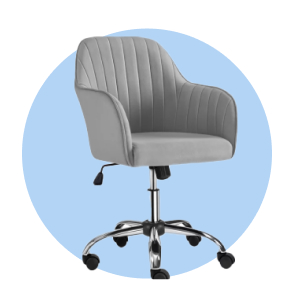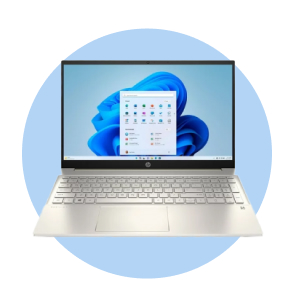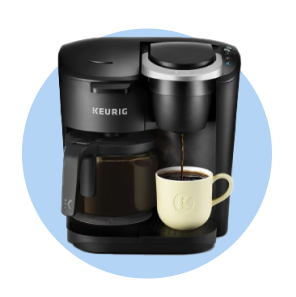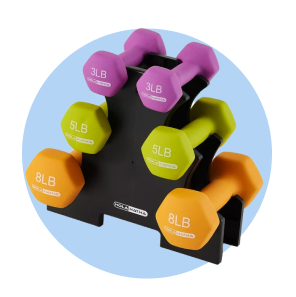
6 Tips for Selecting the Best Home Office Lighting
Natural light feels like home
Now that about a third of full-time employees work at least partially from home, dedicated home offices are more common than ever. Staying productive in these spaces is challenging when they are poorly lit. Home office lighting directly impacts productivity, work quality and comfort, which makes lighting improvements a priority for remote workers.
So which features have the biggest impact? Before implementing any home office lighting ideas, it’s important to understand how the right lighting elevates any room into a comfortable yet functional workspace.
1. Know your light sources
The lighting within most home offices comes from multiple sources, such as ceiling fixtures, desk lamps and windows. It’s crucial to understand how these sources interact so you can create an atmosphere and ambiance that works for you. After all, there’s no point in buying expensive overhead lighting when a desk lamp can complement the daylight just as effectively.
Ambient
Ambient light refers to the overall lighting within a given room. It combines the light from multiple sources to establish the baseline for your workspace. Before you purchase home lighting, consider how you can change ambient light by flipping switches or adjusting window blinds.
Natural
Natural light is the sunlight that enters a room from windows, skylights or open doorways. These sources are highly variable, with color temperatures that change based on the time of day or weather. However, natural light is often the most beneficial for home offices. According to one study, 70% of people experience increased productivity in natural light.
Accent
Accent lighting is specialized lighting that emphasizes certain objects in a room, usually artwork, collectibles and other aesthetically pleasing objects. While these don’t contribute to productivity directly, they do enhance the atmosphere of a room itself, creating a more pleasing work environment. If nothing else, they create an opportunity to personalize your home office and draw attention to meaningful objects, from academic degrees to family photos.
Task-oriented
Task lights brighten specific areas of your home office so that it’s easier to complete work. Specialized reading lights are a common example, although an ordinary desk lamp that draws attention to your workspace also meets this goal.

2. Understand color temperature
As you’re researching lights, remember that color temperature doesn’t refer to literal heat. Rather, it measures the barely perceptible red and blue tone within a light source. Warmer, redder light falls on the low end of the spectrum, while cooler blue light rests at the higher end.
In most workspaces, neutral lighting at around 4,000K is an effective option. At this level, interior lighting mimics how natural light appears in mid-morning and mid-afternoon. If you prefer cooler light, look for options above 4,000K.
3. Be bright
The best home office lighting is always a personal preference, but there are baselines when it comes to productivity. For home office lighting, aim for around 40 lumens per square foot of lit space. Depending on room size, you can usually achieve this through a combination of ceiling, wall and natural lights.
However, it’s important to remember that room brightness doesn’t have to be evenly distributed. For example, a working area lit by task-oriented lights can be up to 500 lumens per square foot. Consider whether your ideal workspace is evenly lit or uses a combination of focused and calm spaces.

Ambient office desk lighting ideas
There are three general categories of lighting. We’ll start with ambient lighting, which refers to lights that contribute to baseline lighting throughout the space. These are often unshowy overhead lights that are more functional than attractive, using diffuse light to minimize shadows. Their aim is simple: make sure everyone can see what they’re doing.
Panel lights
Panel lights are the standard in ambient office lighting. They’re installed in the ceiling and cover a lot of ground at once. These squares full of LEDs provide a lot of lumens per square inch at a very affordable price. Arranging them in a line above your desks can lead to full, even lighting. That helps make up for their lack of personality.
LED strips
To add a little more flair to your ambient light, consider hanging LED strips from your ceiling. Thanks to their narrow shape, these will create less light that’s slightly more directed. That makes them a little less cost-effective at lighting up an entire office, but their striking appearance can give your office an edgier appearance.
Pendant lights
If you prefer your lighting to have a homier feel, consider pendant lights. These individual bulbs hang from the ceiling to create their ambient glow. They can work in rows to illuminate the desks below them, or they can stand alone over a collaborating space to create an anchor
4. Consider lighting ergonomics
Home office lighting isn’t just aesthetically pleasing; it also affects your comfort level. Glare and shadows can be distracting, particularly when combined with the effects of long-term screen use. The good news is that simple changes can make a big difference.
At the workspace level, lamp shades help reduce glare and shadows on your desk. For ceiling and wall light fixtures, be on the lookout for built-in lens covers or diffusers that minimize glare throughout the entire room.
5. Position your desk properly
In some offices, desk positioning can be just as important as light placement. Your desk should take advantage of natural and ambient light that helps reduce glare. For example, desks that face north or south rarely have to deal with moving natural light shadows. By the same token, putting a computer monitor in front of a window will minimize glare while providing an atmospheric view.

6. Use energy efficiently
If you’re worried about the toll office lighting will take on your electricity bill, you’re not alone. Thankfully, energy-efficient lighting is one of the easiest cost-savers to implement. For example, LED bulbs reduce energy use by 75% compared to traditional bulbs while also having longer lifespans. As an added bonus, LED lighting is generally more eco-friendly and available in a wide range of color temperatures.
Brighten your office with Walmart Business
Whether you’re installing lights or repainting the office, Walmart Business can help. Our selection of office supplies, furniture, technology and decor helps managers and small business owners equip their offices without breaking their budgets.
Already a Walmart Business customer? Sign up for a Walmart Business+ membership to save over $500 a year.1 You’ll also get access to free shipping, free delivery from store for orders over $35 and 2% rewards for purchases over $250.2,3,4 Learn more here.


Limited-time offer
Unlock your special promo code
Stay informed on Walmart Business news & get $20 off a $100 purchase!1
1Minimum order of $100. Promo code can be used one time & may not be combined with other offers. Offer not transferable & void where prohibited by law. Customer responsible for all applicable taxes. Offer expires 12/31/2025 at 11:59pm PT. Further restrictions apply. See terms at checkout for details. Promo code offers available in limited quantities. While supplies last.
1Savings based on 1 free $35+ delivery order vs. $9.95 fee and 1 free shipping order under $35 vs. $6.99 fee biweekly, plus 2% Walmart Business rewards on monthly order >$250 (average value of $400).
2Excludes most Marketplace items, freight and certain location surcharges.
3Restrictions apply.
4Exclusions apply. See full terms for details.
Exciting news awaits
Hear firsthand about new products, features & promotions.
By clicking submit, you agree to receive emails about Walmart Business and acknowledge you have read and agreed to our Terms of use and Privacy Policy.











